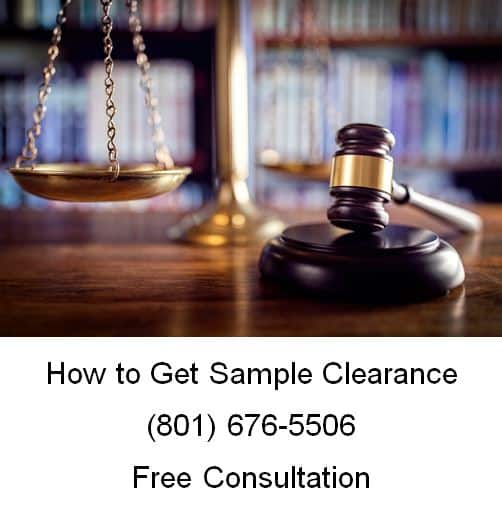
Sampling music is the act of reusing a portion of another sound recording. Whether unique percussion combinations or distinguishable guitar riffs, many musicians sample other’s music. Even though many peole know that I am an MLM Lawyer, I also enjoy helping people with music and producing music. Without obtaining permission from the original musician or owner of the rights to the music, many of these musicians face legal trouble, such as injunctions to not use the sample or even money damages. Obtaining permission for music sampling can be tedious, but will save you from legal action you could face if you sample without permission. Here are some tips to obtain permission before sampling music.
Sample Clearance
“Sample clearance” refers to the process of getting permission from the owners of the copyrighted music. Sampling music requires two sample clearances:
• Clearance from the copyright owner of the SONG — typically the music publisher
• Clearance from the copyright owner of the MASTER RECORDING — typically the recording company
Find the Publisher
In order to get these sample clearances, you will first need to find the copyright owners of the song and master recording. The music publisher is typically the easiest to find; so, start there. Performing rights organizations, like Broadcast Music Incorporated (BMI) or the American Society of Composers, Authors, and Publishers (ASCAP), collect money for public performances of artists’ music. Therefore, these organizations are a good place to locate the publisher.
Once you’re on these websites, use the search database to find the source song of the music you are sampling. If you are unable to find the song on the websites, try calling the individual organizations and ask for the song indexing department. Then, once you have the source, contact that source to ask for clearance for sampling the source music. Keep in mind that some publishers have policies against granting sampling permission.
A lot of publishers refuse to grant sampling clearance to artists that they’ve never heard of or do not know. If you can offer to pay them upfront and show your ability to pay, they may be more inclined to speak to you.
Find the Owner
After you have obtained sample clearance from the music publisher, you must obtain sample clearance from the owner of the master recording. Here are some tips to help you find that owner:
• Ask the publisher
• Ask the record company that releases the source music. You can check online record stores or the Phonolog directory at local record stores.
Finding the master recording owner can be difficult. Once you think you’re on the right track, you may find that the record company sold their copyright to someone else, or that the rights to the song have reverted back to the original artist. There are sampling consultants that you can pay to help you through the sample clearance process, should you have trouble. Although experienced sampling consultants can be expensive, in the end, they can save you time and money. These consultants are familiar with the procedures, costs, and the people at the publishing companies who grant license rights. It is important to plan ahead and leave yourself alternatives in case your sample clearance is rejected. Obtaining permission for sampling can be a very long process, taking months or more. Don’t forget that a lot of copyright owners have a no-sampling policy. If the music you were planning on sampling has a no-sampling policy, there will be no way to get permission to sample. It is wise to plan ahead and have alternatives in mind, in case your clearance is denied and you can’t use it.
Recreate the Music Sample
Many artists re-record the music they want to use, instead of using the pre-recorded master. This means that the artist actually plays and records the music to sound exactly like the original one they want to sample. According to copyright law, infringement only occurs when the original master recording is used, but not when the sound is mimicked and re-recorded. This is a great solution if you cannot obtain sample clearance from the owner of the master recording. You still need permission from the music publisher, because the song itself is copyrighted. However, you do not need clearance from the owner of the master recording.
Some copyright owners want their music to be sampled; so, they encourage music sampling. These are good samples to find and use, since the process will be less tedious and surely fruitful.
If the artist still has some control over what sampling is cleared, you may have better luck contacting the artist directly. This is especially true when the copyright owners of the master recording and the publisher are not helpful.
Free Consultation with a Utah Trademark Lawyer
If you are here, you probably have a trademark issue you need help with, call Ascent Law for your free intellectual property law consultation (801) 676-5506. We want to help you.
8833 S. Redwood Road, Suite C
West Jordan, Utah
84088 United States
Telephone: (801) 676-5506
Recent Posts,/blockquote>
How to Avoid an Income Tax Audit
Fraudulent Prenuptial Agreement
Does a 14 year old child’s opinion matter in a custody battle?

